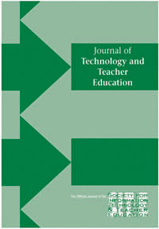Comparative Analysis and Validation of Instructivist and Constructivist Self-Reflective Tools (IPSRT and CPSRT) for Novice Instructional Planners
Developing effective instructional plans from both a traditional approach (e.g., instructivist) as well as a constructivist approach is clearly important for preservice teacher education. This study was designed to validate and compare two cognitive tools, the Instructional Planning Self-Reflective Tool (IPSRT) and the Constructivist Planning Self-Reflective Tool (CPSRT), which were each found in prior research to significantly improve instructional planning performance and motivation/attitude for preservice teachers. In a repeated measures design, 42 preservice teachers received both the IPSRT and the CPSRT in differing order (counterbalanced between groups) and wrote two instructional plans on the same topic, one with each tool. Results validated the IPSRT for its efficacy in facilitating the development of instructivist plans and the CPSRT for constructivist plan development. No significant differences were found between the IPSRT and CPSRT in participants’ instructional planning performance, motivational/attitudinal impact, and perceived tool value, thus confirming that neither tool is more effective than the other. Differences were revealed in preservice teachers’ perceptions of metacognitive value of each tool, where the IPSRT was found to better support self-monitoring whereas the CPSRT better supported cognitive flexibility. Implications for implementing these two tools for instructivist and constructivist planning are discussed.

